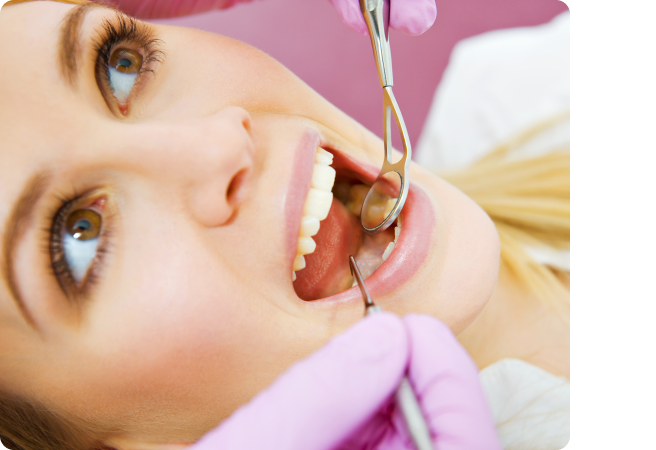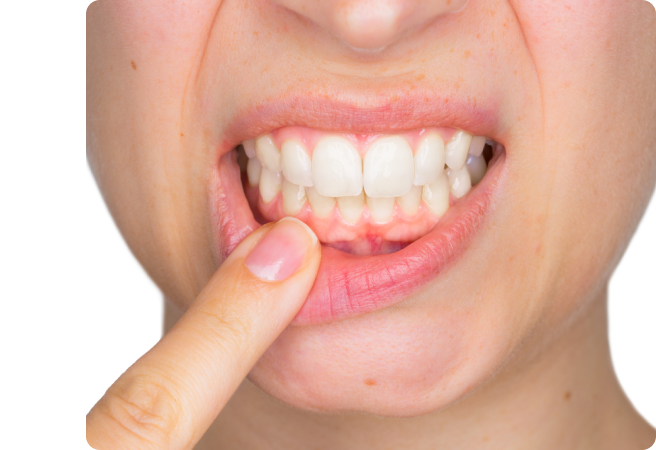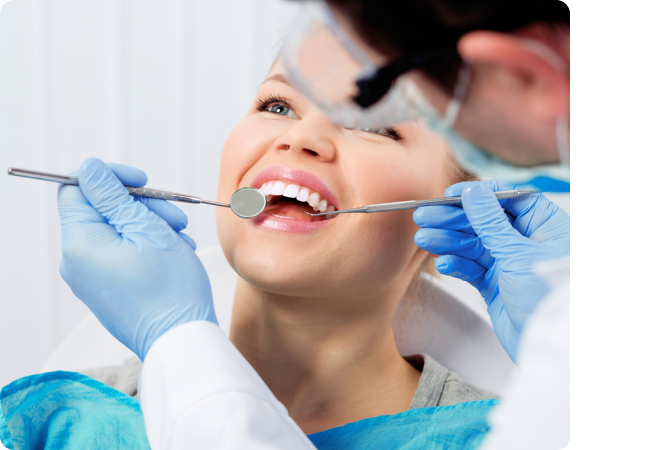Tooth Sensitivity: Is Your Toothpaste The Hidden Culprit?
Is your toothpaste hurting your teeth or gums? There...



While daily brushing and flossing can help keep tooth decay and disease away, plaque and tartar build-up can still occur if not kept in check by a professional.
Gums, also known as the periodontium, are the foundation of your teeth. Regular dental hygienist appointments are the basis of preventative care and can ensure your gums and teeth stay clean and healthy for life.
A dental hygienist is a registered professional who is specifically trained in the prevention and treatment of gum disease. If you are looking for a dental hygienist in Wellington, come and see the team at Gentle Dental. All of our hygienists are university qualified and experts in preventative care. Our dental hygienists work with you and your dentist to provide dental care that maintains the health of your gums and strength of your teeth and keeps your smile looking beautiful.
Dental hygienist procedures include examining your teeth and gums and cleaning plaque and tartar off your teeth.



While daily brushing and flossing can help keep tooth decay and disease away, plaque and tartar build-up can still occur if not kept in check by a professional.
Gums, also known as the periodontium, are the foundation of your teeth. Regular dental hygienist appointments are the basis of preventative care and can ensure your gums and teeth stay clean and healthy for life.
A dental hygienist is a registered professional who is specifically trained in the prevention and treatment of gum disease. If you are looking for a dental hygienist in Wellington, come and see the team at Gentle Dental. All of our hygienists are university qualified and experts in preventative care. Our dental hygienists work with you and your dentist to provide dental care that maintains the health of your gums and strength of your teeth and keeps your smile looking beautiful.
Dental hygienist procedures include examining your teeth and gums and cleaning plaque and tartar off your teeth.


Gingivitis and periodontitis are two types of gum disease that contribute to tooth loss in adults.
Gingivitis – The build-up of tartar and plaque that leads to inflammation is known commonly as gingivitis. If you aren’t flossing or brushing your teeth regularly or correctly you might notice swelling and a puffy redness. Removing all the plaque and tartar from your teeth and keeping it off can cure gingivitis.
Periodontitis – A disease of the gums and the deeper supporting tissues of the teeth. It usually results from chronic gingivitis that is left untreated. When the inflammation gets into the supporting bone, irreversible damage may result. The bone may shrink away and teeth can become sore and/or loose, resulting in tooth loss. Bone loss caused by periodontitis is irreversible. Once you have periodontitis, it takes careful monitoring, diligent home care and thorough hygiene therapy to ensure it doesn’t progress.



With regular visits, the Gentle Dental Centre can plan a series of treatments to slow down the process and prevent early tooth loss. In many cases we can successfully stop further deterioration to the gums enabling you to hold onto your teeth longer.
At the Gentle Dental Centre, we have five experienced and friendly hygienist who can look after all your oral health needs. Call us now to book an appointment with one of our gentle hygienist.
Learn more about dental preventatives and how to care for your dental hygiene from our latest blog posts.
Is your toothpaste hurting your teeth or gums? There...
Is it normal for teeth to wear over time? Worn teeth...
Are yellow teeth normal? If your teeth aren’t a pearly...
How often do I need dental exams and x-rays? Regular...
How much does the dentist cost in New Zealand? The cost...
Having braces can put you at higher risk of tooth decay....
If you have a buildup of tartar on the back of your...
If you are experiencing tooth pain, gum swelling or...
Most people have experienced tooth sensitivity at least...
Good dental hygiene comes down to developing regular oral health habits. Taking care of your teeth is easy once you get these basics down. How you brush your teeth is important. Brush your teeth twice a day for two minutes in gentle circular motions around your teeth and gums. Brush all sides of your teeth including the backs of your teeth. You should also floss between teeth every day.
The tools you choose to brush with can help improve your dental hygiene. Choosing a soft toothbrush can help alleviate any discomfort you may feel when brushing. Electric toothbrushes can be a great tool for getting into all those hard-to-reach places. Many electric toothbrushes also come with two-minute timers making it easy to brush for the recommended amount of time.
Symptoms of poor oral hygiene can include cavities, plaque, bad breath, sensitive or bleeding gums, dry mouth, gum disease, and discoloured teeth.
If you have any of these symptoms it could be a sign that you need to improve your oral hygiene routine. Brushing your teeth regularly will help get rid of plaque and tartar and improve your breath. Flossing helps to look after the gums and can prevent gum disease and gingivitis. Visiting your dental hygienist twice a year can help treat oral hygiene. If you have cavities or tooth decay, you will need a dentist to help treat your teeth. As one of the best dentists in Wellington, we can treat all your dental needs in-house at one of our three clinics.
During a professional teeth cleaning appointment, your dental hygienist will use a scaler to descale your teeth. This tool uses ultrasound to get rid of tartar and plaque from behind and between your teeth as well as around your gum line. Even with regular brushing, you may have areas of your teeth which get a build-up of plaque in these areas. Once you have tartar on your teeth, the only way to get it removed is during a hygienist appointment.
After your scaling, the hygienist will use a gritty toothpaste and clean your teeth with an electric toothbrush. This toothpaste helps to gently deep clean your teeth.
For most people, a soft-bristled toothbrush will feel the most comfortable against their teeth and gums. Medium and hard-bristled toothbrushes can actually damage tooth enamel and irritate the gums. Using a softer brush is often a safer option. Choose a toothbrush that you find easy to grip and maneuver into the hard-to-reach areas of your mouth. If you have braces, you might find a toothbrush with a narrow head easier to use.
Both electric and manual toothbrushes are equally effective at reducing gum disease and cleaning away plaque. The best toothbrush is one you’re most likely to use and use well.
